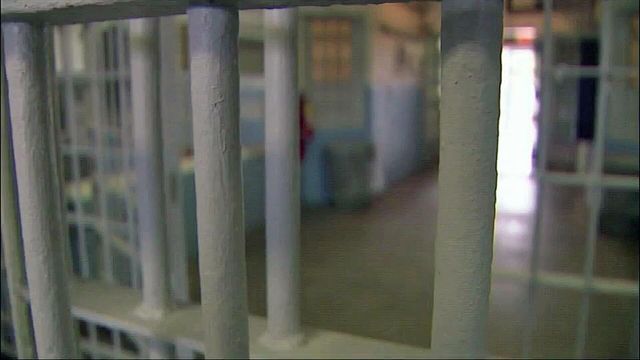Prisons nationwide seek FCC OK to jam cellphone signals
A national group of prison officials wants the Federal Communications Commission to relax its regulations to give wardens more leeway in cracking down on the use of contraband cellphones by inmates.
Posted — UpdatedThe Association of State Correctional Administrators sent a letter to FCC Chairman Thomas Wheeler this month, asking that the commission re-evaluate its prohibition on jamming cell signals, which prison officials say hinders their ability to stop the use of phones smuggled to inmates.
"Unfortunately, current legal technologies designed to prevent contraband cellphone use are expensive and not one hundred percent effective. As long as there is a market for cellphones and a means to make calls from within prison walls, inmates and their accomplices will continue to find ways to beat current methods of detection and prevention," Leann Bertsch, president of the ASCA, wrote in the letter.
Bertsch cited the case of Kelvin Melton in her letter. The gang leader received a life sentence at a "supermax" federal prison in Colorado for orchestrating the 2014 kidnapping of Frank Janssen, the father of the Wake County prosecutor who put Melton behind bars, from his prison cell in Butner via a contraband cellphone. FBI agents were able to use Melton's calls with his associates to locate Janssen in Atlanta and rescue him.
George Solomon, director of prisons in North Carolina, said the Melton case highlighted the dangers of cellphones in prison.
"Any criminal activities they were doing illegally on the outside, they continue that from inside – that keeps them empowered," Solomon said. "That makes them even more dangerous inside."
Authorities have confiscated more than 6,000 cellphones in North Carolina's 55 prisons since 2005, including 443 so far this year. The numbers rose steadily until 2012, when authorities implemented airport-like entrance and exit procedures, such as metal detectors, X-ray scanners and trained dogs, at higher-security prisons. A state law passed after Janssen's kidnapping that made it a felony to provide a cellphone to a prison inmate also served as a deterrent, authorities said.
"We're still not winning that battle," Solomon said, noting that the numbers of seized phones is a mere fraction of those that get inside state prisons. "The options that out there right now are ineffective."
Some facilities used "managed access," an expensive system that blocks unauthorized cell signals, in portions of the prison, but Solomon said signal jamming would extend that across entire prisons and be more effective.
The FCC has opposed jamming, saying it could adversely affect people who live or work near a prison.
"The ability to stop the signals and turn the cellphones effectively into a brick, that would stop the trade of cellphones and the intimidation that goes along with that," Solomon said.
Bertsch also noted inmates have used cellphones to orchestrate a prison escape in Tennessee, an attack on a South Carolina corrections officer and drug an firearms trafficking in Mississippi.
• Credits
Copyright 2024 by Capitol Broadcasting Company. All rights reserved. This material may not be published, broadcast, rewritten or redistributed.






